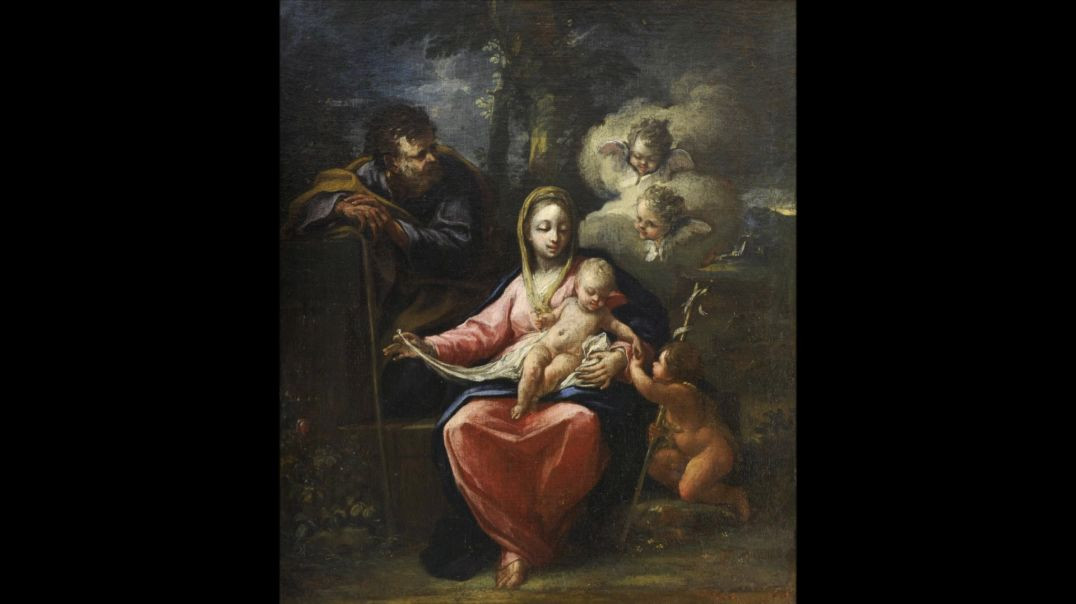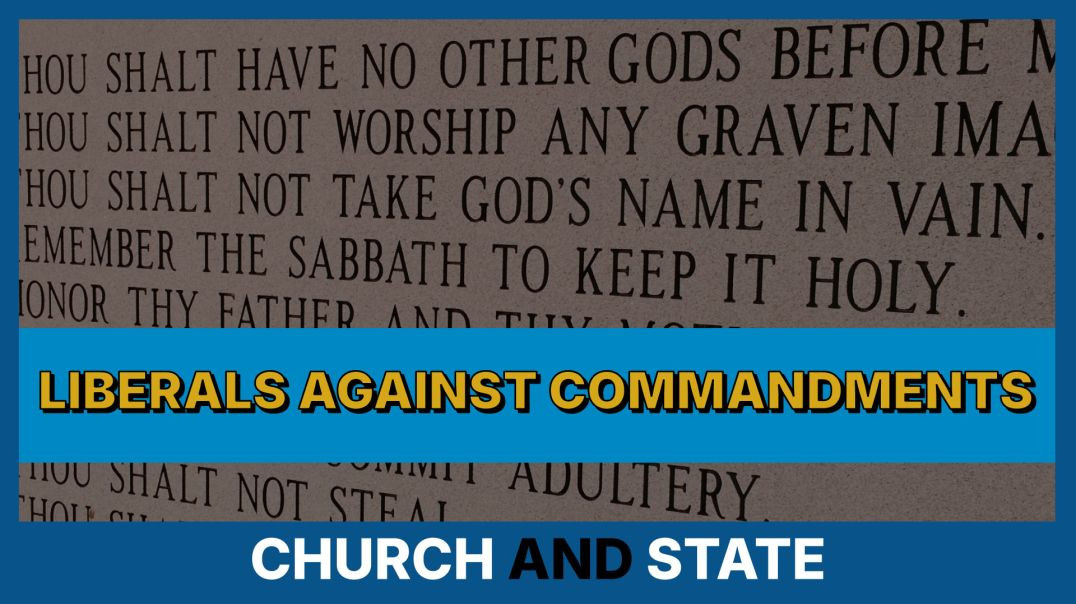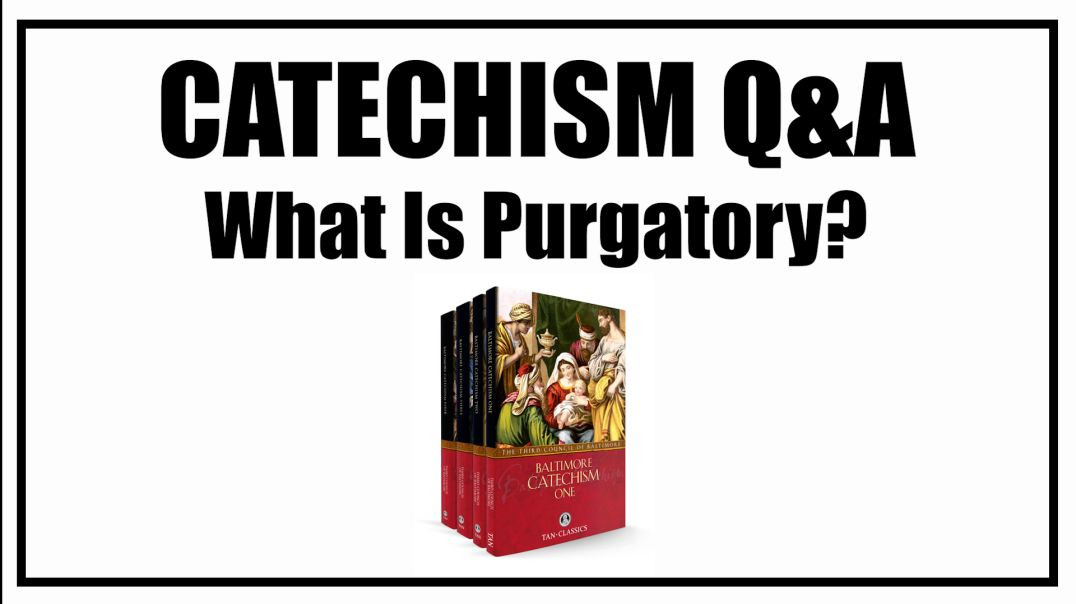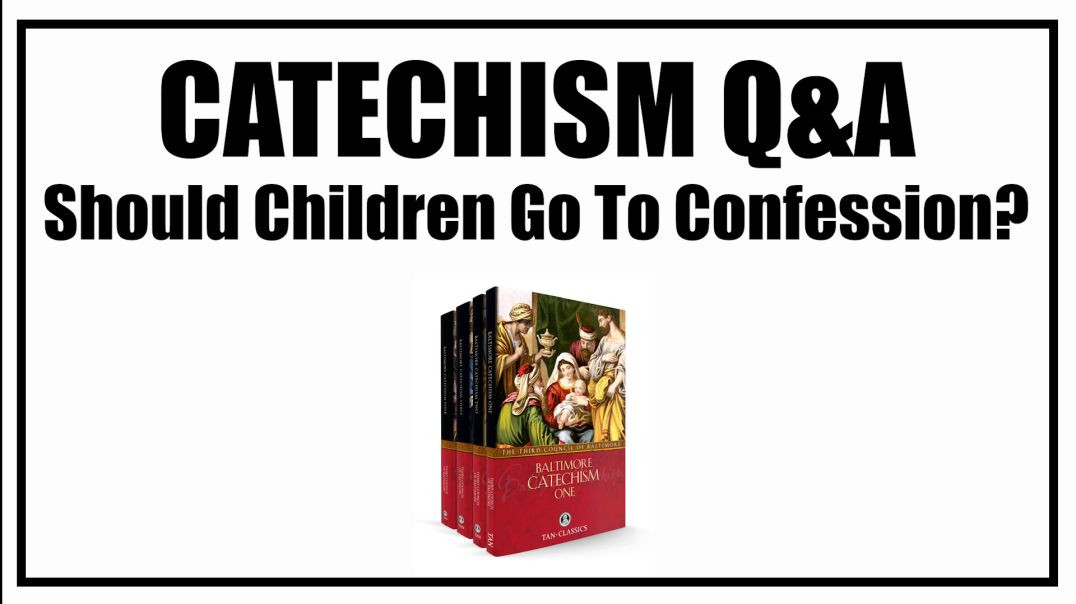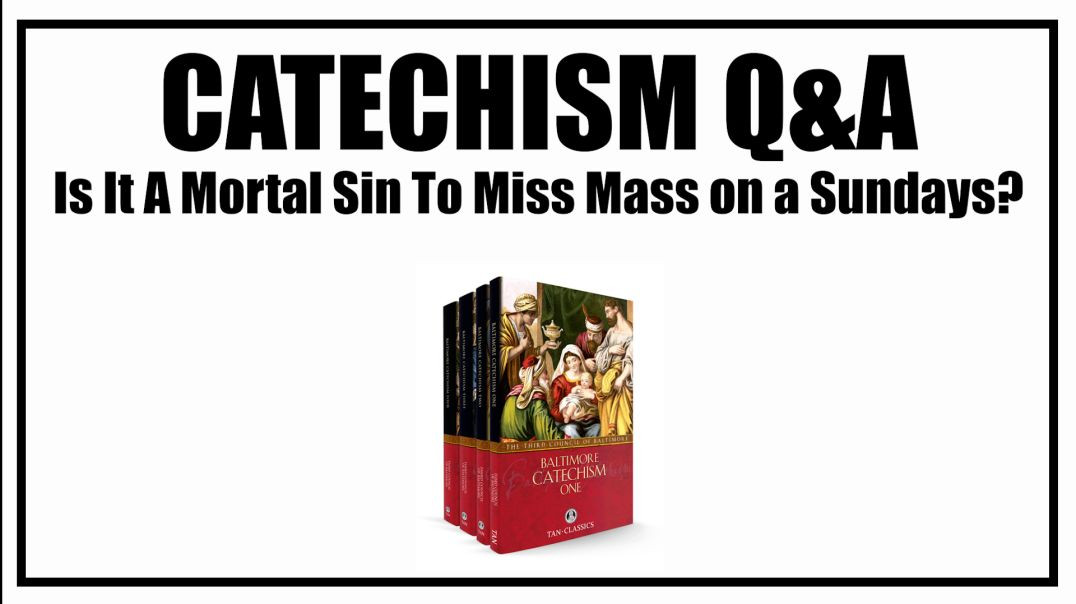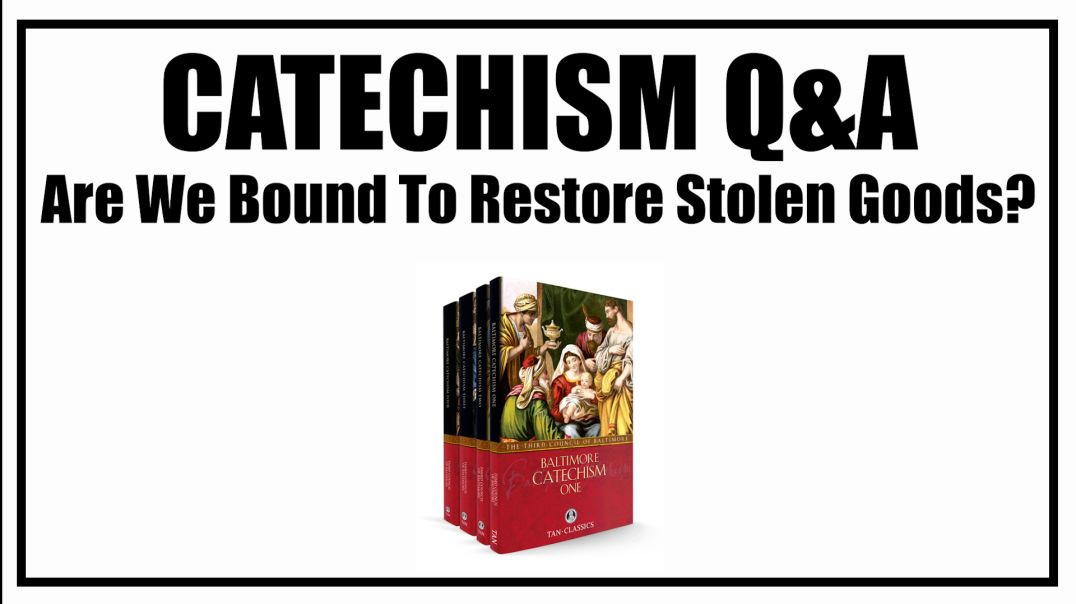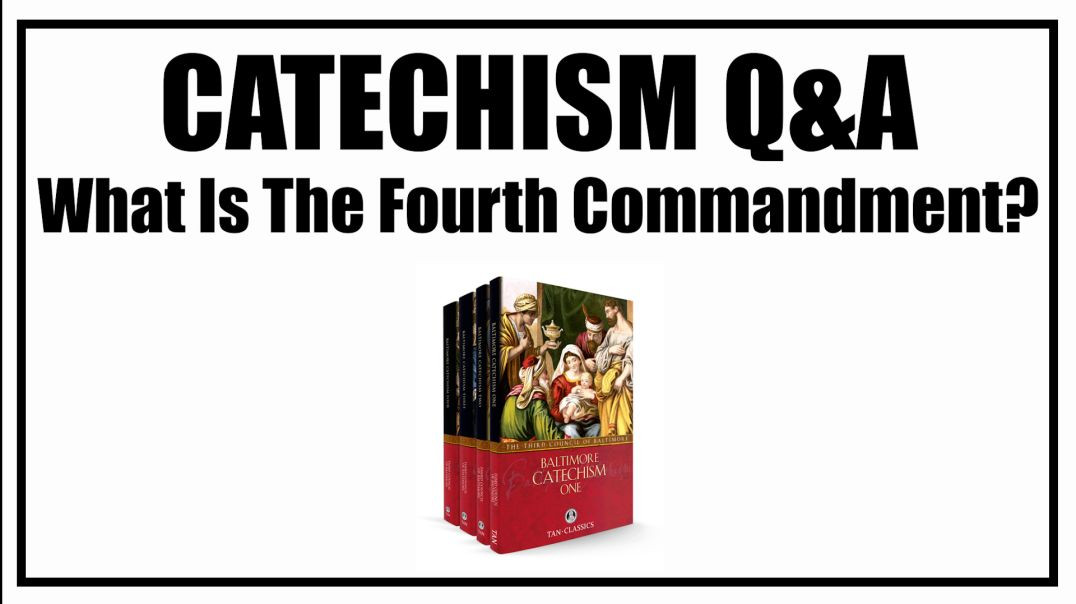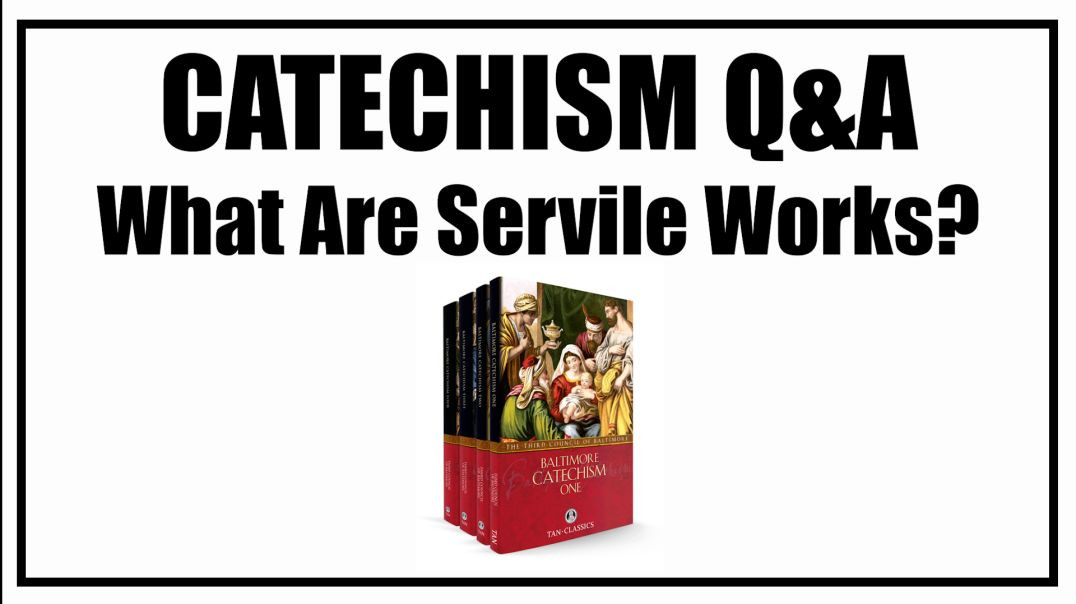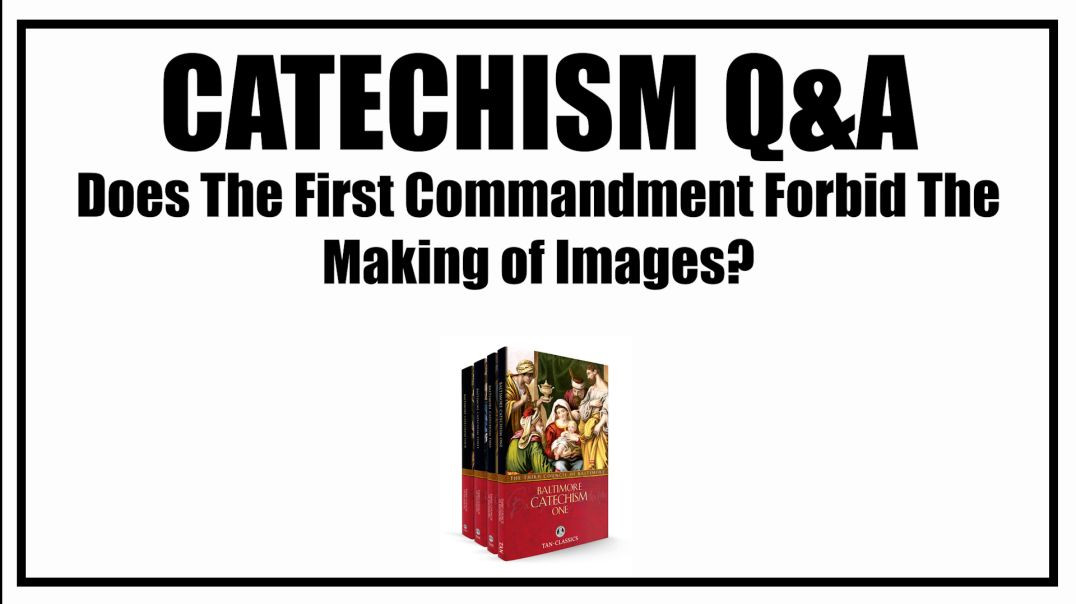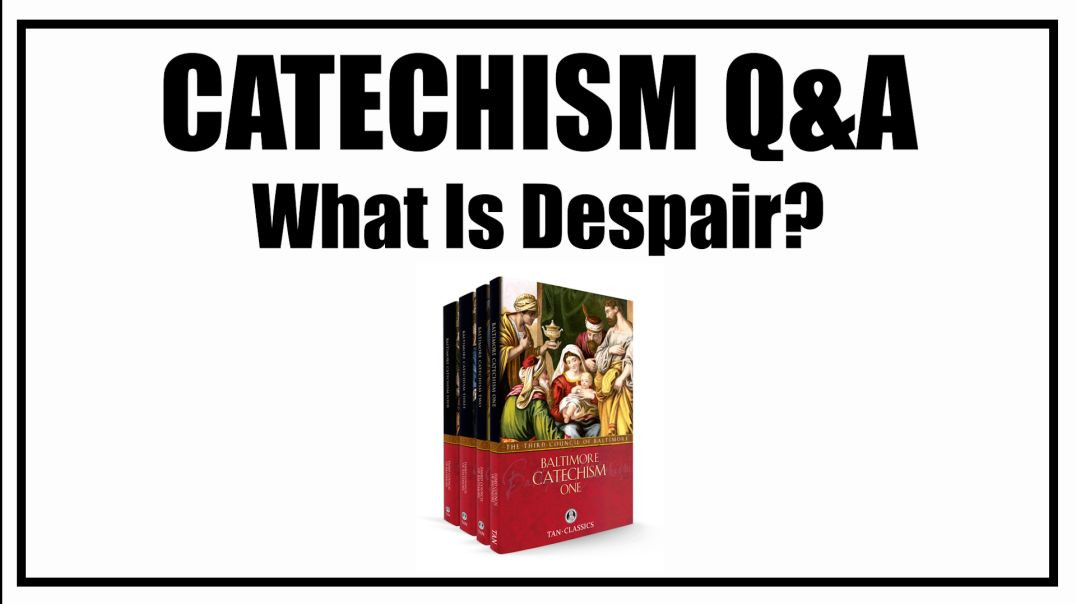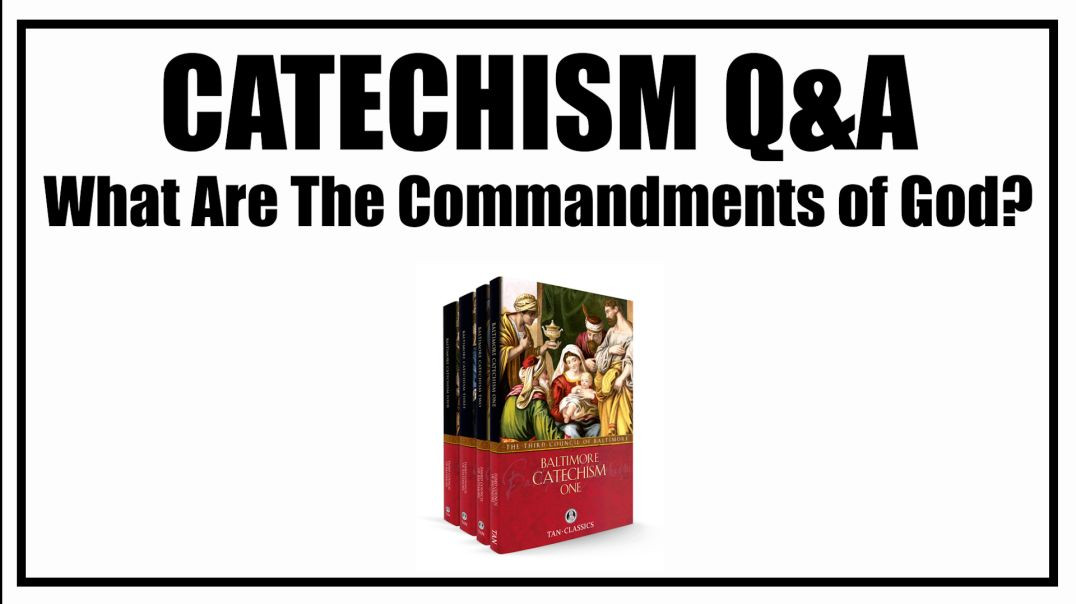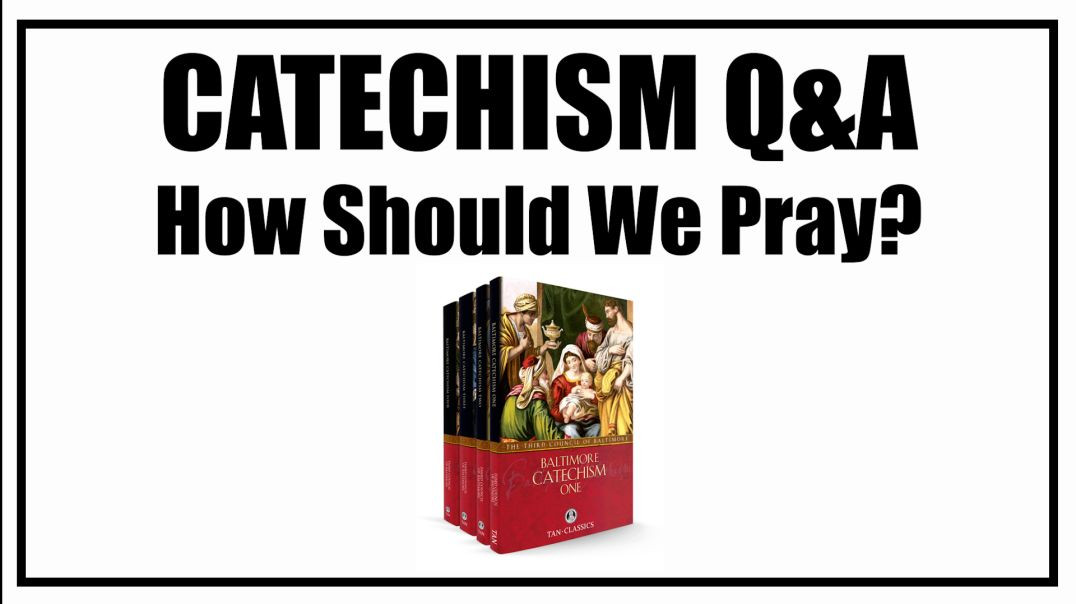Baltimore Catechism, Lesson 19: The 4th, 5th, & 6th Commandments
Here on the next lesson of the Baltimore Catechism presented by the Ecu-Men, we cover the Fourth, Fifth, & Sixth Commandments; really important these days. If you want to understand why society is breaking down at this moment, you’ll want to listen to this episode, since very little of this topic is addressed at all these days. Thanks for listening!
241. What is the fourth commandment of God?
Honor thy father and thy mother. (Exodus 20:12)
242. What are we commanded by the fourth commandment?
To respect and love our parents, to obey them in all that is not sinful, and to help them when they are in need. (Ephesians 6:1)
243. Does the fourth commandment oblige us to respect and to obey others besides our parents?
Besides our parents, the fourth commandment obliges us to respect and obey all our lawful superiors. (Romans 13:1-2)
244. What duty have parents toward their children and superiors toward those under their care?
Parents must provide for the spiritual and bodily welfare of their children; superiors, according to their varying degrees of responsibility, must care for those entrusted to them. (Ephesians 6:4)
245. What are the duties of a citizen toward his country?
Be sincerely interested in its welfare, and respect and obey its lawful authority.
246. How does a citizen show a sincere interest in his country's welfare?
By voting honestly and without selfish motives, by paying just taxes, and by defending his country's rights when necessary.
247. Why must we respect and obey the lawful authority of our country?
Because it comes from God, the Source of all authority.
248. Why are we obliged to take an active part in works of good citizenship?
Because right reason requires citizens to work together for the public welfare of the country.
249. What are the chief duties of those who hold public office?
To be just to all in exercising their authority and to promote the general welfare. (Wisdom 6:3-4)
250. What does the fourth commandment forbid?
Disrespect, unkindness, and disobedience to our parents and lawful superiors. (Deuteronomy 27:16)
251. What is the fifth commandment of God?
The fifth commandment of God is: Thou shalt not murder. (Exodus 20:13)
252. What are we commanded by the fifth commandment?
To take proper care of our own spiritual and bodily well-being and that of our neighbor.
253. What does the fifth commandment forbid?
Murder and suicide, and also fighting, anger, hatred, revenge, drunkenness, reckless driving, and bad example. (I John 3:15)
254. What is the sixth commandment of God?
The sixth commandment of God is: Thou shalt not commit adultery. (Exodus 20:14)
255. What are we commanded by the sixth commandment?
We are commanded to be pure and modest in our behavior. (Romans 12:1)
256. What does the sixth commandment forbid?
The sixth commandment forbids all impurity and immodesty in words, looks, and actions, whether alone or with others. (Ephesians 5:3)
257. What are the chief dangers to the virtue of chastity?
Idleness, sinful curiosity, bad companions, drinking, immodest dress, and indecent books, plays, and motion pictures.
258. What are the chief means of preserving the virtue of chastity?
To avoid carefully all unnecessary dangers, to seek God's help through prayer, frequent confession, Holy Communion, and assistance at Holy Mass, and to have a special devotion to the Blessed Virgin. (I Peter 5:8)
=======
Baltimore Catechism, Lesson 19:
https://www.catholicity.com/ba....ltimore-catechism/le
Leo XIII: On Capital & Labor:
https://bit.ly/3366bdh
Leo XIII: On Socialism:
https://bit.ly/3nLe6o6
Romans 13:1-4:
https://bit.ly/3flbQ49
Frederick Engels, Origin of the Family...
https://bit.ly/394PD9j
Lenin, against the family…
https://bit.ly/2HnQsi0

